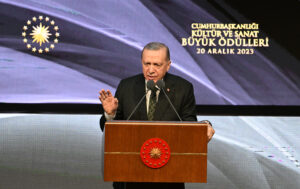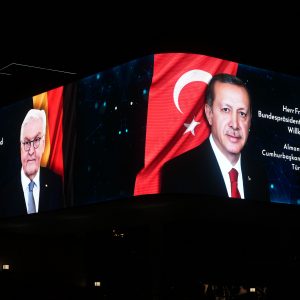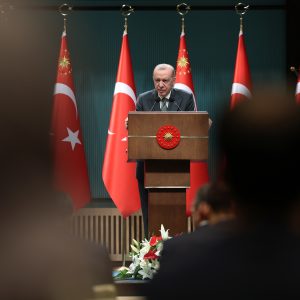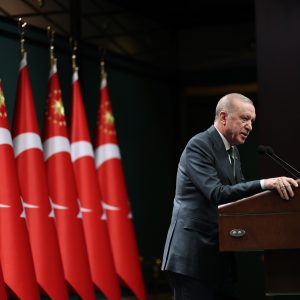Victims of Christchurch mosque terror attacks still healing on 4th anniversary of assault
CHRISTCHURCH, New Zealand (AA) – Families and survivors of the 2019 terrorist attack on the Christchurch mosque in New Zealand recalled the shooting and honored their loved ones on the 4th anniversary of the assault.
On March 15, 2019, Brenton Tarrant, a 28-year-old Australian white supremacist terrorist killed 51 people and injured 40 more at the Al Noor Mosque and Linwood Islamic Centre in Christchurch, New Zealand. He was sentenced to life in prison in 2020 without the possibility of parole, in the first such ruling ever handed down in the island country.
The Linwood Mosque leader, Imam Abdul Lateef, who has played a significant role in the process, shared that the Linwood Mosque was one of the two mosques attacked in the horrific terror attack on March 15, 2019, and four years later, the community is still healing.
Lateef lost friends and members of his congregation in the attack, but he has been a pillar of strength for the community in the aftermath. He has worked tirelessly to promote healing and reconciliation, and his efforts have not gone unnoticed.
The community has rallied around the Linwood Mosque, offering support and encouragement as the mosque works to rebuild and move forward. The mosque has become a symbol of resilience and hope, and Imam Abdul Lateef has been at the forefront of that effort.
Lateef said the community is moving on and that the focus now is on building a more inclusive and peaceful society.
Nathan Smith, a survivor of the Christchurch mosque attack, has expressed his shame and guilt over the fact that the gunman who killed many of his friends and fellow worshippers was also a white person, just like himself.
Smith said he knew almost everyone who was killed and that he still thinks about them everyday. He added that he struggles with his own identity as a white person in the wake of the attack, saying: “I’m ashamed to be a white person because of what he did.”
Despite the pain and trauma he has experienced, Smith said he is trying to move forward and find happiness in life. He urged others to do the same, saying it is important to focus on the positive and to appreciate the time we have with loved ones.
Ben Gresham, a member of the Christchurch Muslim community, has co-founded Mahia te Aroha, a community-led initiative aimed at promoting social cohesion and peace.
Mahia te Aroha, which means “embrace love” in Maori, is a grassroots organization that brings together people from all walks of life to work towards a more peaceful and inclusive society. The group focuses on building connections and fostering understanding between different communities.
Gresham’s personal experience as a survivor of the attack has inspired him to take a leadership role in promoting social cohesion and peace. He believes that the best way to combat hate and bigotry is through building connections and understanding.
Left with deep scars
Farid Ahmed, a survivor of the shooting, has reflected on his journey of healing and forgiveness.
“Forgiveness has given me so much peace. It helped me heal very quickly,” he said. Ahmed’s message of forgiveness has resonated with people around the world, and he has been invited to speak at events and conferences on topics such as peacebuilding and trauma healing.
Ahmet, who lost his wife during the attacks, said forgiveness has been a way to honor his wife’s memory and to continue her legacy of love and kindness.
Rashid Omar, the father of Tariq Omar who was killed in the Christchurch mosque shootings, has opened up about his son’s passion for football and how much he misses watching him play.
Tariq Omar was just 24 years old when he was killed.
According to Omar, his son also coached a team of 10-year-old children and was always enthusiastic about the game. He remembers a particular incident where his son received a red card in a game, and they laughed about it.
“I overcome my own grief by helping other people,” Omar added.
Among the victims was Hamima Ahmat’s husband. Ahmat’s story is just one of the many heartbreaking accounts of those who lost loved ones in the attack. The senseless act of violence left a deep scar on the people of Christchurch and the world.
Janna Ezat, the mother of a victim, has publicly said she has forgiven her son’s killer. Ezat’s son Hussein Al-Umari was one of the 51 people who were killed in the terror attack on the two mosques in Christchurch.
She said forgiveness was the only way she could avoid being consumed by hate and revenge. She added that forgiving the killer has given her peace and that she harbors no hatred towards anyone.
Ezat’s message of forgiveness and peace has been seen as a powerful example of how faith helps one respond to acts of violence and hatred.
The Christchurch mosque attack targeting Muslim worshippers as they prayed was one of the deadliest mass shootings in modern history.









